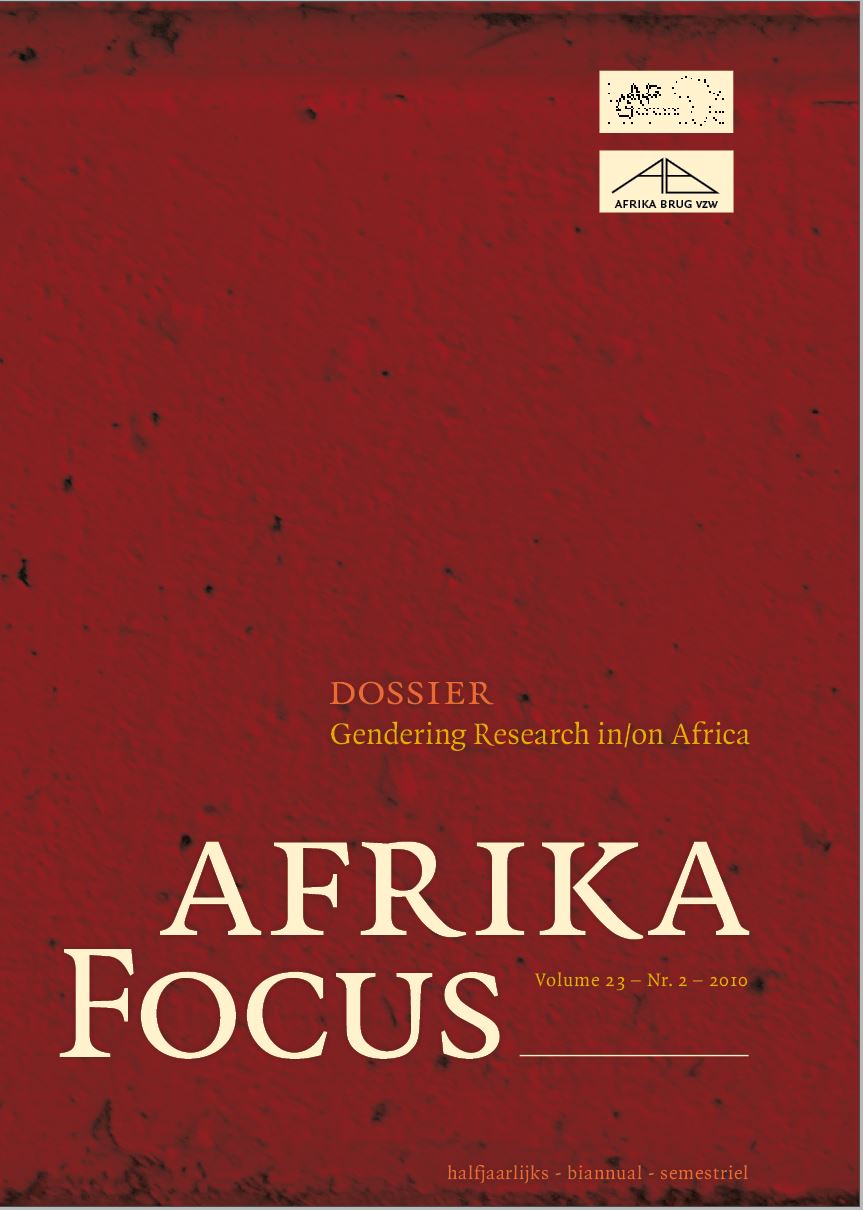Researching gender: the challenge of global diversity today
DOI:
https://doi.org/10.21825/af.v23i2.5004Abstract
The text of this paper is based on a lecture given at the symposium of the Ghent African Platform “Researching Gender in/on Africa” at Ghent University in December 2009. It addresses some general challenges faced by ‘gender studies’ as an autonomous field versus ‘gender research’ as an integrated topic within mainstream disciplines in academia. Gender studies have sometimes superseded ‘women’s studies’ and expanded to cover the terrain of study of various forms of diversity including men’s and transgender studies. We will show that the ‘mainstreaming’ of gender in public policy at local, national and transnational levels is a development which may potentially lead to the loss of a – feminist – political edge. Secondly, while gender studies with their emphasis on socially constructed gender as opposed to biological essentialist understandings of ‘sex’ appear to face the challenge of a popular ‘new biological determinism’, it is shown that the binary model of sex/gender in fact has been criticised for some time now from within feminist theory and gender research. This is (selectively) illustrated with research from four disciplines, including the work of African gender studies scholars, i.e. feminist philosophy, social sciences (in particular socio-cultural anthropology), history and biology itself. This then shows how the accusation that gender studies would be ‘socially deterministic’ without attending to bodily matters or materiality is unfounded. Finally, it is argued that there is still a need for gender studies to become more culturally diverse, more global and transnational in its outlook, by becoming more deeply attuned to the way gender intersects with other forms of difference and taking into account postcolonial critiques of western feminist paternalism, without falling into the trap of cultural relativism. Key words: gender studies, feminism, sex/gender debate, gender mainstreaming, postcolonial critique, cultural relativism, AfrocentrismDownloads
Published
How to Cite
Issue
Section
License
Authors who publish with this journal agree to the following terms
Authors retain copyright and grant the journal right of first publication with the work simultaneously licensed under a Creative Commons Attribution License that allows others to share the work with an acknowledgement of the work's authorship and initial publication in this journal.
Authors are able to enter into separate, additional contractual arrangements for the non-exclusive distribution of the journal's published version of the work (e.g., post it to an institutional repository or publish it in a book), with an acknowledgement of its initial publication in this journal.
Authors are permitted and encouraged to post their work online (e.g., in institutional repositories or on their website) prior to and during the submission process, as it can lead to productive exchanges, as well as earlier and greater citation of published work (See The Effect of Open Access).


